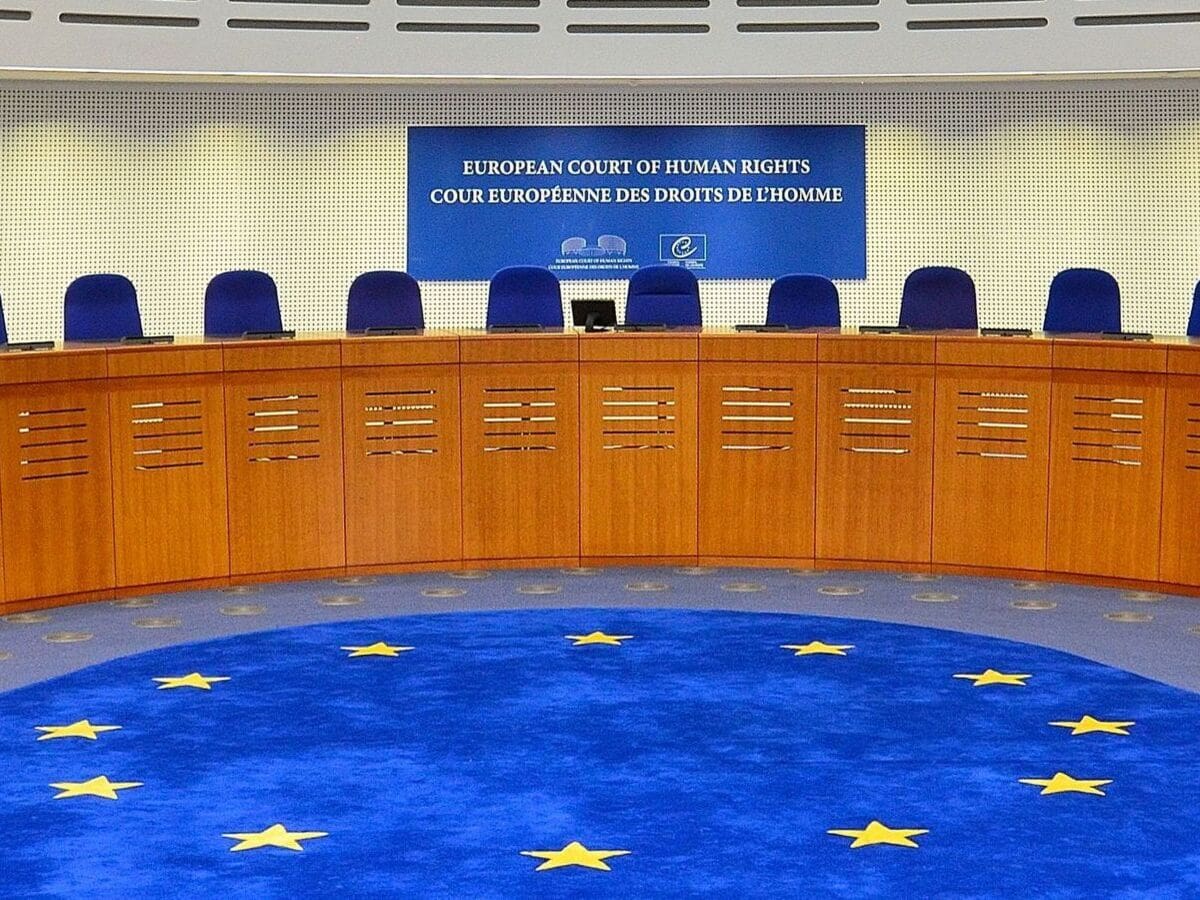Governments will be feeling the heat on Tuesday 9 April – as the European Court of Human Rights (ECHR) will rule in three separate court cases over failings on the climate crisis. Crucially, the verdicts could force them to adopt more ambitious climate policies.
ECHR cases against the climate crisis
The European Court of Human Rights (ECHR) will rule on whether governments’ climate crisis policies are violating the European Convention on Human Rights.
All three cases accuse European governments of inaction or insufficient action in their measures against the climate crisis.
In a sign of the importance of the issue, the cases have all been treated as priority by the Grand Chamber of the ECHR. As the court’s top instance, its 17 judges can set a potentially crucial legal precedent.
Significantly, the landmark cases will be the first time the court has issued a ruling on the climate crisis.
Domestic courts have already condemned several European states for not fulfilling their climate commitments. For instance, climate group Urgenda won a case against the Dutch government in 2019. In particular, a Dutch court ordered the government to cut its emissions by 25% by 2020.
Then, in 2021, the Administrative Court of Paris ruled that France’s inaction on the climate crisis had caused ecological damage.
Meanwhile, in 2022 three organisations took the UK government to the UK High Court – and won. Specifically, this was for breaching its obligations under the UK’s Climate Change Act (2008). However, since the government has persistently failed to clean up its climate record, they are taking action once again.
All in all, a 2023 report identified that individuals and groups had filed 81 cases against governments outside the US to challenge their overall climate policy response. [Pdf, p3]
Now, the ECHR could go further and make clear new fundamental rights. Lawyer and former French environment minister Corinne Lepage, who is defending one of the cases, said that:
The challenge lies in ensuring “the recognition of an individual and collective right to a climate that is as stable as possible, which would constitute an important legal innovation
Climate inaction – a violation of human rights
So on Tuesday, the Swiss Association of Elders for Climate Protection will bring the first case. The group comprises of 2,500 women aged 73 on average. Four of its members have put forward individual complaints.
Specifically, the group is arguing that the “failings of the Swiss authorities” in terms of climate protection would:
seriously harm their state of health
While the convention does not contain any explicit provision relating to the environment, the court has already ruled based on Article 8 of the Convention in other cases. Notably, the article sets out the right to respect for private and family life. In previous cases relating to waste management or industrial activities, the ECHR has emphasised the obligation of states to maintain a “healthy environment”.
Following this, the former mayor of the northern French coastal town of Grande-Synthe Damien Careme is taking action against the French government. Crucially, he is arguing that the “deficiencies” of the French state’s climate action is putting his town at risk of being submerged under the North Sea.
In 2019, he already filed a case at France’s Council of State – its highest administrative court – alleging “climate inaction” on the part of France. The court ruled in favour of the municipality in July 2021, but rejected a case he’d brought in his own name. As a result, Careme took it to the ECHR.
Finally, a group of six Portuguese, aged 12 to 24, are bringing the last case to the ECHR. Significantly, the group of young plaintiffs were inspired to act after fires ravaged their country in 2017.
Their case is not only against Portugal, but also 31 other states. This includes every EU country, plus Norway, Switzerland, Turkey, United Kingdom and Russia. Almost all European countries belong to the Council of Europe (COE), not just EU members.
While the COE expelled Russian after its invasion of Ukraine, the ECHR still hears cases against Moscow.
A “turning point”
The ECHR hears cases only when all domestic appeals have been exhausted. Crucially, its rulings are binding. Despite this, some states, like Turkey have failed to comply with its rulings in the past.
The three cases rely primarily on articles in the convention that protect the “right to life” and the “right to respect for private life”.
However, the court will only issue a precedent-setting verdict if it determines that these cases have exhausted all remedies at the national level. In 2023, the accused states tried to demonstrate this is not the case during two hearings held in 2023.
Lawyer of the NGO Global Legal Action Network (GLAN) Gerry Liston said that the courts position:
may mark a turning point in the global struggle for a livable future
A victory in any of the three cases could constitute the most significant legal development on climate change for Europe since the signing of the Paris 2015 Agreement
Feature image via Adrian Grycuk/Wikimedia, cropped and resized to 1200 by 900, licensed under CC BY-SA 3.0 PL
Additional reporting by Agence France-Presse




